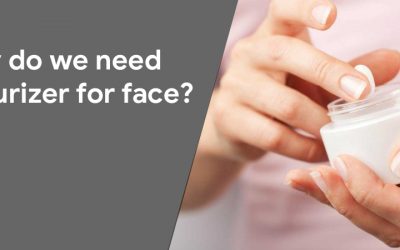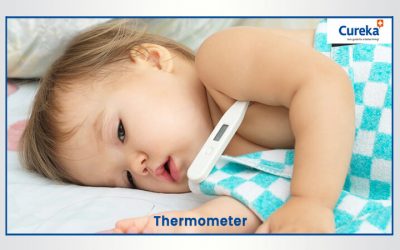Why Lip-Licking Makes Your Lips Dry & How to Stop It
Medically Reviewed By:
Dr. Hema Sathish M.B.B.S., D.D(UK)
Dermatologist, Founder of Cureka
Introduction: The Innocent Habit That Harms
When your lips feel dry or chapped, licking them may feel like the easiest way to get quick relief. But that soothing sensation lasts only a few seconds. In reality, frequent lip-licking damages the delicate skin on your lips, makes dryness worse, and can trigger a cascade of lip problems.
What Happens When You Keep Licking Your Lips
Saliva isn’t a moisturizer. It contains enzymes like amylase and lipase that break down food, but these enzymes can also irritate the thin skin on your lips. Repeated exposure to saliva strips away natural oils, damages the protective barrier, and leads to increased transepidermal water loss (TEWL). Instead of hydrating your lips, licking them actually accelerates dryness.
Common Conditions Triggered by Lip-Licking
Lip-licking can lead to several clinical conditions, especially when it becomes habitual:
- Cheilitis simplex: Characterized by dry, cracked, and peeling lips. Common in people who frequently lick their lips or are exposed to dry climates.
- Angular cheilitis: Red, cracked corners of the mouth often caused by excessive moisture from drooling or licking. It may require antifungal or antibacterial treatment.
- Exfoliative cheilitis: A more severe condition where thick, crusted layers form on the lips, often worsened by repetitive trauma like licking or picking.
- Factitial cheilitis: Cyclical peeling of the lips caused by repetitive behaviors such as biting or licking, often requiring behavioral therapy.
How to Break the Lip-Licking Cycle
The key to healing is preventing further damage. Here’s how:
- Apply a bland, natural lip balm regularly. Look for formulas that include occlusives like fruit wax (e.g., Rhus verniciflua peel cera), coconut oil, or olive oil to restore moisture and form a protective barrier.
- Avoid flavored, fragranced, or mentholated lip balms, as they can increase the urge to lick.
- Use lip balm for summer and winter to shield against environmental triggers like UV rays, wind, and dry air.
- Keep lips hydrated from the inside by drinking plenty of water.
- Identify triggers such as anxiety or stress. In some cases, habit reversal training or cognitive behavioral therapy may be helpful, especially for children or those with compulsive behaviors.
When to Seek Professional Help
If your lips are persistently cracked, swollen, or infected despite a good lip care routine , it may be time to consult a dermatologist. Signs of secondary infection (pain, oozing, crusting) require medical attention. Persistent or worsening symptoms might need patch testing or prescription treatments.
Prevention Tips You Can Share
- Always carry the best lip balm for dry lips and apply it frequently.
- Keep your lip care routine simple and fragrance-free.
- Use lip balm for winter to protect against cold, dry air, and lip balm for summer with SPF to guard against sun damage.
- Discourage lip-licking by offering healthier coping tools, especially for children.
Conclusion:
Dry lips aren’t just a cosmetic issue they can indicate deeper habits that need attention and with preventive care it’s possible. Stopping lip-licking is the first step to healing. With the right products and awareness, you can restore your lips’ health and keep them soft, smooth, and protected year-round.
FAQs
1.Why does lip-licking make my lips dry?
Lip-licking can make your lips dry because saliva evaporates quickly, leaving the lips even drier. Additionally, saliva contains enzymes that can further damage the skin on your lips, leading to more dryness and irritation.
2.How can I stop the habit of lip-licking?
To stop lip-licking, you can use lip balms or moisturizers that create a barrier to prevent the urge to lick. Stay hydrated, avoid environmental triggers, and keep your lips moisturized throughout the day.
3.Is lip-licking a sign of a health problem?
In most cases, lip-licking is a habitual behavior rather than a sign of a health problem. However, excessive or chronic lip-licking may indicate dry skin, dehydration, or an underlying condition such as anxiety or stress.
4.What are the best ways to keep lips hydrated?
To keep your lips hydrated, use a moisturizing lip balm regularly, drink plenty of water, and avoid licking or biting your lips. Natural oils, such as coconut oil, can also help soothe and hydrate your lips.
5.Can lip-licking cause long-term damage to the lips?
Yes, repeated lip-licking can lead to long-term damage to the lips, including chapping, cracking, and irritation. Over time, this can cause the skin to become more sensitive and prone to infection or scarring.
Reference:
- Art of prevention: Practical interventions in lip-licking dermatitis- 2020 Jun – https://pmc.ncbi.nlm.nih.gov/articles/PMC8060673/
- Deposition of plant lipids after single application of a lip care product determined by confocal raman spectroscopy, corneometry and transepidermal water‐loss -2019 Jun – https://pmc.ncbi.nlm.nih.gov/articles/PMC6851866/
- Lip-Lick Cheilitis and Its Connection to the Brain – 2024 Jul – https://pmc.ncbi.nlm.nih.gov/articles/PMC11316855/











